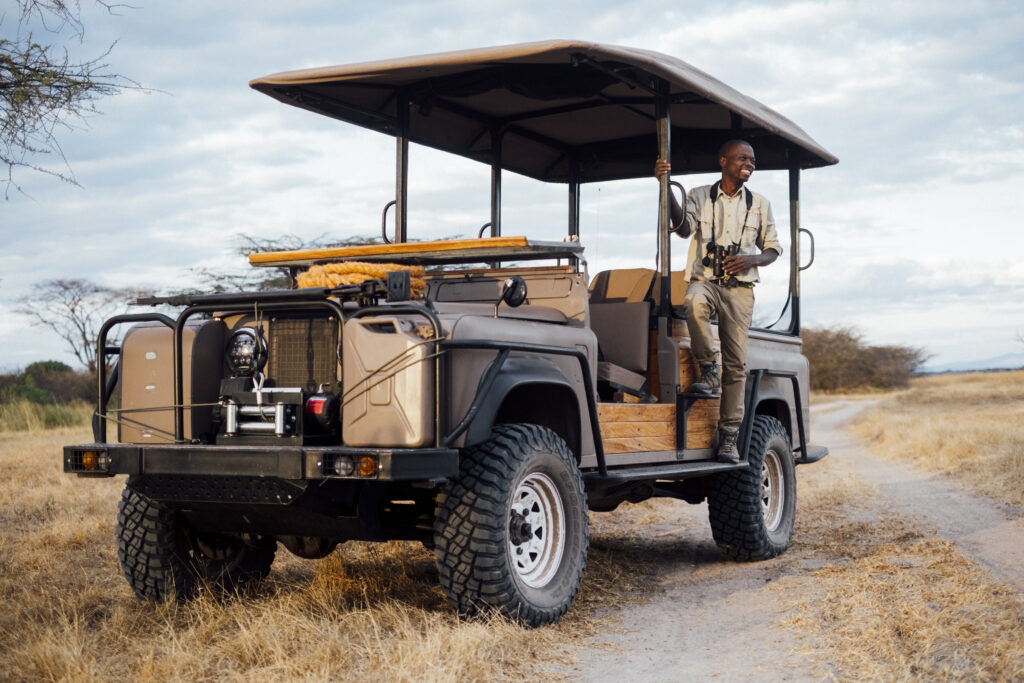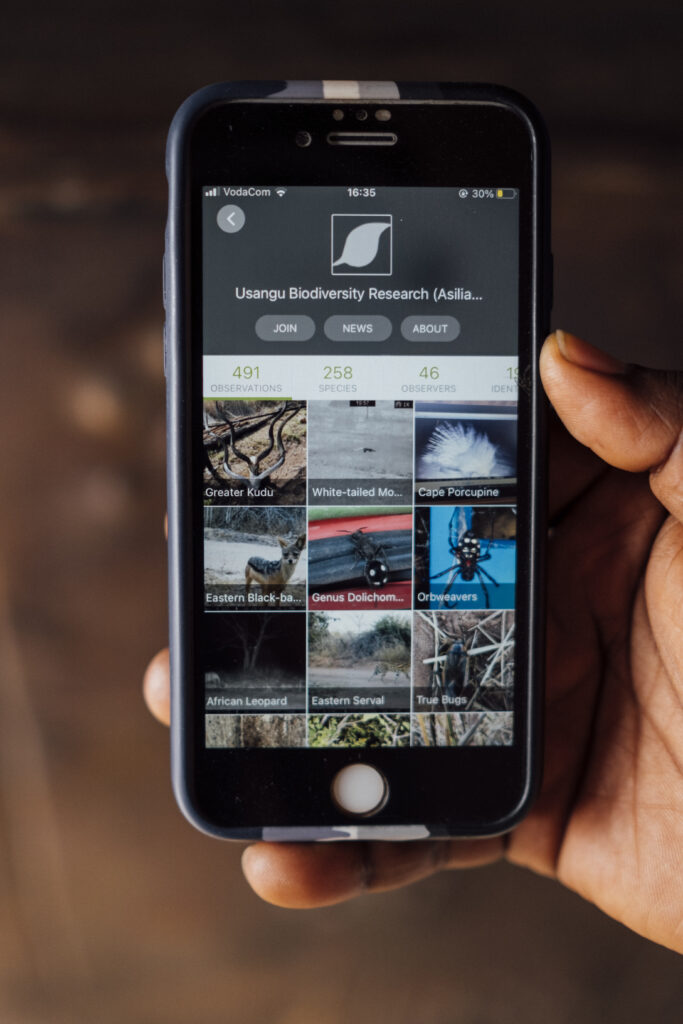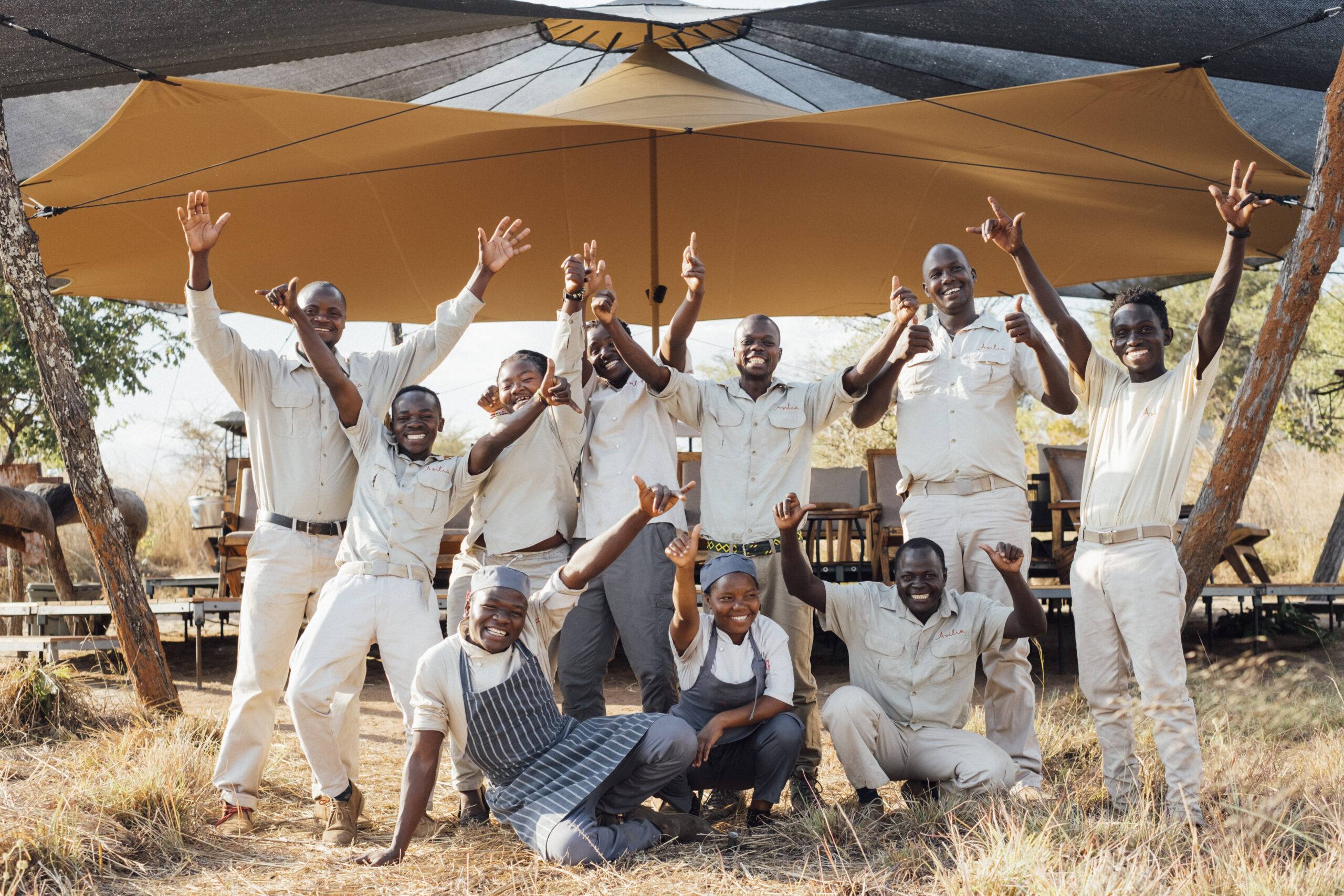Author: James Denny, Asilia Africa
At Asilia Africa we strive to offer authentic safari experiences that make a positive impact in the crucial wilderness areas where our 19 camps and lodges are located. We operate in a sustainable and responsible way and build camps in pioneering areas, bringing the benefits of ecotourism to places where previously there were none. There are few better examples of this than our latest venture, which opened on 1 June 2022, Usangu Expedition Camp.
The project has been pioneering in several ways. Usangu Expedition Camp is the first eco-tourism camp of its kind in the Usangu wetlands – a remote wildlife paradise in the far south of Ruaha National Park in southern Tanzania. It is the first Asilia camp where every single member of staff comes from the nearest village, giving new job opportunities to local people and affording them the chance to benefit from their surroundings in a new way, hopefully safeguarding it for future generations.
After dark our ethanol-powered safari vehicles allow our guests to experience Usangu’s wildlife in a novel way. State-of-the-art thermal monocular cameras capture live images of the nocturnal wildlife which are then relayed back to an iPad in the vehicle for guests to see. This approach of not using visible light means that there is no disturbance to animal behaviour. Whether guests get to see a porcupine, serval, owl, hyena, or lion on a hunt, they can be sure to see them behaving entirely naturally, unaffected by their presence.

Usangu Expedition Camp is also the first partnership between a tourism company (Asilia), TANAPA (Tanzania National Parks Authority) and TAWIRI (Tanzanian Wildlife Research Institute). Guests have the chance to take part in hands-on conservation, participating in the story, rather than simply observing it. Much of the wildlife found in this 6,000 km2 wilderness has never seen a vehicle or people before so, whether they are out on a game drive, guided walk or boating safari, guests get the unique opportunity to be part of the habituation process.
The camp’s two safari vehicles are upcycled Land Rover Defender 110’s that have been re-built from scratch by expert mechanics in Tanzania. As you’d expect from any Asilia safari vehicle, they are extremely comfortable and adept at coping with the challenging terrain of the remote floodplains where we operate. What is more surprising, is how they are powered. The V8 engines in these custom-built, open-sided Land Rovers are run on green ethanol fuel made from molasses, a by-product of a nearby sugar plantation.

After dark our ethanol-powered safari vehicles allow our guests to experience Usangu’s wildlife in a novel way. State-of-the-art thermal monocular cameras capture live images of the nocturnal wildlife which are then relayed back to an iPad in the vehicle for guests to see. This approach of not using visible light means that there is no disturbance to animal behaviour. Whether guests get to see a porcupine, serval, owl, hyena, or lion on a hunt, they can be sure to see them behaving entirely naturally, unaffected by their presence.
Our guests get to use the same iNaturalist app that our researchers use to record wildlife sightings for distribution mapping. The data is processed in the adjoining Douglas Bell Eco Research Station which guests are free to visit to learn more about the conservation efforts and research being carried out. As Usangu is still relatively unstudied and unexplored there are still potentially species to be discovered.
Additionally, guests are given their own motion sensor camera trap to place at the start of their stay and can work with the researchers to identify any predators captured on the film. Guests can also go out with the team and use telemetry to track and locate key species we have fitted with radio collars.

With only four tents and two vehicles, Usangu Expedition Camp has a maximum capacity of eight guests or two groups at any given time, in an area twice the size of Luxembourg. To put that into better perspective, this area is roughly four times the size of the Masai Mara Reserve, or nearly 10 times the size of the Sabi Sands Game Reserve. Your client’s group will have a dedicated guide and private vehicle for the duration of their experience to facilitate all game drives, boating and walking safaris. This allows for an improved level of flexibility within the itinerary and provides guests the ability to tailor their experience to reflect what interests them most.

But, best of all, guests get to play a part in safeguarding this incredible region which, until Asilia recently opened a camp there, received no protection at all. The Usangu Wetlands are the source of the Great Ruaha River and Rufiji River, which are the lifeblood of Southern Tanzania and carry a great biological importance. If you are interested in learning more about Usangu or Asilia’s other properties and conservation initiatives, please reach out to James Denny from Asilia Africa who will be more than happy to discuss things further.


Recent Posts
Categories